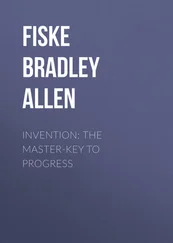PART TWO
During the construction work
Miss Tojo Reflects
This morning, although I had sprinkled water over the office floor, everything on the desk was soon covered in dust and felt gritty—most unpleasant! We’ve been plagued by dust every day since the construction work started, but today, what with the high wind, it’s been particularly difficult. When I open the heavy front door, the corridor acts as a funnel and the air is full of fine dust so that no amount of sprinkling will lay it.
But today should see the back of the task broken with the moving of the building. In thirty minutes’ time, the whole building will be moved four metres, with all of us inhabitants in it! For the last three months, they’ve been digging out the foundations and laying rails under the structure. Now, a crowd of workmen have gone into the diggings and will work the fifty hydraulic jacks installed there so as to lift the whole building at once. The five-floor apartment house is shaped like a three-sided rectangle; excluding the basement, there is a total of one hundred and fifty rooms connected by dark corridors into which the sunshine never penetrates. There used to be an incinerator in the central courtyard, but it has been taken down to aid the work of moving the building.
The square behind is already crowded with a mob of rubberneckers. A television broadcasting van has just arrived and, pushing through the throng, taken up position in the centre of the square. It looks as if they’re just about ready to start filming. In contrast, all within the apartment block is as quiet as the grave. Everyone is secluded in her room awaiting the moment the building will be moved.
It’s my turn to be on duty, so my opposite number is also in her room. I don’t feel at all comfortable sitting here all on my own. Comparing my watch with the clock on the wall behind me, I see that it is now twenty to twelve—that means I’ve got another twenty minutes to wait. I don’t feel like reading a book or a paper to pass the time, which hangs heavy on my hands. Sitting here vacantly, I feel it quite natural to chat to myself. The phrase goes round and round in my head—‘just a little while until the moment’—but precisely what moment? True, the office where I have sat for over thirty years, and this brick building of five storeys which has survived the great earthquake and the wartime air raids, has to be quietly moved, but is this what we residents are awaiting? This is surely just the outward appearance of the matter; being objective, which is to say looking at it from the outside, we won’t actually be able to see the building being moved.
‘We won’t disturb you at all. You can all carry on living in the apartments just as before. You will see—you can fill a glass with water and we shan’t even spill one drop when we move the building.’
Such were the words of the important-looking gentlemen who had come to persuade us to accept the plans for widening the road. They were a Section Chief of the City Highways Department and the Departmental Manager of some construction company. We had opposed the earlier plans—tearing down half the building to make way for the road, or alternatively driving a tunnel through the lower three floors—and so they had come to win us over with the third plan. As a result of their explanation, given like a conjuror’s patter in their most coaxing voices, we gave way and have since become inured to living amidst the construction work, and we’re now cooped up like guinea pigs, literally holding our breath as we await the final event.
Man is an animal that seeks to know the reason for his existence, and just as a prisoner will scratch the wall of his cell to ascertain that he is still alive, and to mark the passing of time, so we guinea pigs had become so obsessed by the promise not to spill one drop of water that we agreed to put them to the test. It was Miss Shimoda, committee representative of the third floor, who first proposed this experiment. As she had originally been a science teacher, and was naturally devoted to experiments, it was perhaps a slightly strange outcome that she should have persuaded the majority to partake in what was after all a rather unscientific experiment. For the consensus was not for all to conduct a standard experiment, but for each to lock herself in her room and carry out the test in her own fashion. There was to my mind a certain irony in this. Still, as the practice of the ladies living in the apartments has always been to live their own lives without interfering in the affairs of others, it could not be helped. So that is the reason why all went to their rooms and locked themselves in an hour ago, providing the contrast between the bustle outside and the tomblike stillness within. The only sign of life is Miss Iyoda’s cat, which she has locked out of her room. It is curled up asleep on top of the banister on the gloomy staircase.
As for my views on this experiment—well, I think it’s childish, not to say stupid. But, as a caretaker here, I have to be sensitive to the psychology of the residents—what looks like mere child’s play in fact gives them something to be interested in. And as it is my duty to do what the majority of residents want, I too have put a glass full of water on the centre of the office desk.
Anyway, putting such thoughts aside, when I look at the water piled up to the brim of the glass, its surface like a living membrane, I remember first learning about surface tensions when I was a student, and how a speck of dust can break through it at any time; and I wonder if they are all so engrossed in this experiment just because they wonder if it will spill?
My answer is a definite No! The moment this building is moved, a past crime will be revealed. People are frightened that something will occur. That’s why they avert their eyes, preferring to stare instead at glasses of water.
About six months ago, a clap-trap new religious cult called ‘ Oshizu ’ was very fashionable in this building. An unpleasant-looking man of about fifty, his hair plastered down with pomade, brought a girl no taller than a child known as ‘the Thumbelina priestess’. I suppose they called her a priestess because she was dressed in a white robe with loose red trousers. Just like a shrine vestal, anyway, she danced some weird whirling jig. At first, only a few of the residents associated with her. But then, after a bit, she started making prophecies and miracles and the number of believers rose. There are still some who stick like I do to the first impression that she is a fraud, but the majority are now under her influence. When I say the majority, I mean most of those who spend the daytime in their rooms—in other words, the old women past retirement age. Those who still have work to keep them busy seem to be less involved.
But for some reason or other one thing haunted everyone’s minds—the theft of the master key some two months before. This one key, meant for the use of the wardens, can open every one of the hundred and fifty rooms in the building, and is still missing. For the last six months, everyone in the building has more or less lived in dread and uneasiness. After all, the women who have lived alone for so long in these apartments have their secrets, little aspects of their lives known only to themselves, and now someone unknown is free to pry into them, to intrude.
As for myself, although I’ve spent nearly all my working life as a receptionist here, and haven’t been able to get about much, not even to see a film or two since my leg went wrong, and although I must as a result appear a bit eccentric, it’s not really so. I’ve enjoyed reading since I was a child, and try to understand the way of life of as many people as possible; I carefully read several newspapers every day, and hope I haven’t fallen behind the times. But most of the residents here have at some time or other had the opportunity to lead as full lives as are open to women. Now, as they grow old and look back on the bright days of their pasts, a lot of them perversely withdraw into their shells. When I sit in my office by the front door after those with jobs have left, I shudder as I look at the silent staircase and think of those women in the building who will spend their remaining days in solitude, as if imprisoned by concrete walls. They merely stay alive; they have no activity except to dream about the past. At such times as this, I have a sort of hallucination: I imagine how, in rooms on the third floor, the fifth floor, old women pass their days in silence still gazing at the broken fragments of the dreams of youth, every now and then letting fall a sigh that echoes down the corridor, until they combine on the stairway and roll down to the cavernous hallway, raising one long moan around where I sit.
Читать дальше












